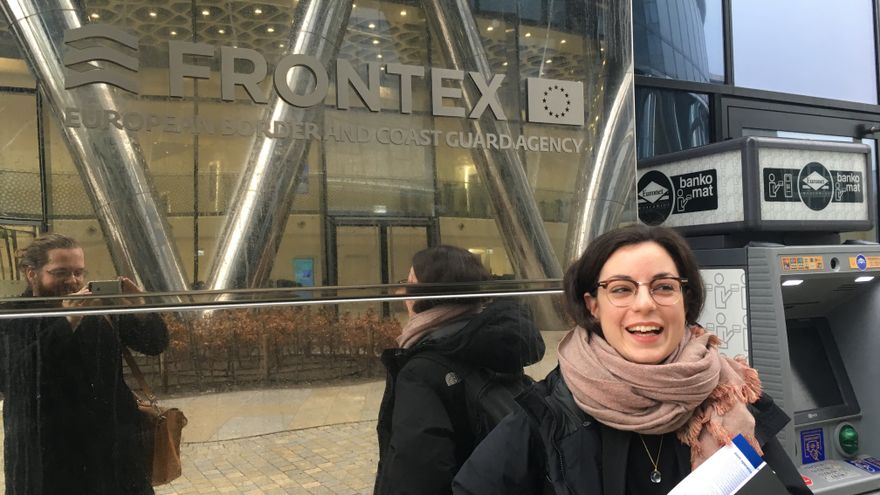Three recent cases mark an end to the lull in access litigation against the Council of recent years.

In the span of just half a year, the Council has moved from carefree slumber to intense judicial scrutiny of its manner of discharge of the public’s right of access to its decision-making documents. Recent legal challenges have been brought by respectively a former member of the European Parliament’s Secretariat, a professor of European law, and an environmental NGO, and relate to key areas of institutional resistance.
Carefree slumber as the action moved elsewhere
During the turbulent first decade of Regulation 1049/2001 (sometimes known as the ‘Access Regulation’), introduced in 2001, the Council faced a barrage of legal challenges over its implementation of the public right of access to its documents, most of which it lost. Yet, in recent years, it appeared that the storm began to subside for the intergovernmental arm of the EU’s legislature, the Council of Ministers.
In recent years, increasingly, external scrutiny turned to the Union’s day-to-day executive, the Commission, and the EU’s various agencies. For example, the European Medicines Agency is now frequently challenged by pharmaceutical companies over decisions to disclose what they consider sensitive commercial information, while earlier this year, Frontex became the eye of a considerable media and political storm over its decision to prosecute activists with limited financial resources for failing to pay legal costs incurred by it in a previous access cases.
Meanwhile, in the past five years, the Council defended itself in court over an access to documents refusal only once. This is a truly unique situation considering the intense and relentless scrutiny that the institution previously invited. In the case in question, the judgment of which was handed down in March of this year, the General Court squarely ruled in favour of professor of European law Laurent Pech, who sought to get access to a legal advice pertaining to a legislative procedure.
Opinions will differ over the reasons for the Council’s period of temporary calm on the access to documents front. Likely, steps to improve the implementation of Regulation 1049/2001, enhanced engagement with requesters with an eye to better understanding their needs, and various Presidency’s efforts to shorten the period of non-disclosure of pivotal ‘limite’ documents all have contributed their bit. At the same, as has also been observed by a member of the Council’s legal service in private capacity, certain issues lingered that have neither been fully clarified nor resolved. In this sense, the recent cases brought signal a new face of unsettled legal controversies, rather than a breach of a newly-found ‘balance’.
The cases
This imbalance is now again put on trial as pivotal Brussels ‘insiders’ once again take aim at the Council’s interpretation of Regulation 1049/2001. While little is as of yet known about the contents of the new cases, the limited available information gives a sense of the breadth of legal issues at stake.
De Capitani: Informal double book-keeping in the legislative process?
The first case, T-163/21, was lodged by Emilio De Capitani on 23 March. De Capitani formerly worked as head of the secretariat of the European Parliament’s LIBE committee, a committee charged with oversight of democratic and fundamental rights issues in the EU. De Capitani has been concerned with fundamental and citizens’ rights breaches for a longer time already. In this light, he previously brought a case against his own former institution, the European Parliament, over its failure to immediately and fully disclose documents pertaining to so-called ‘trilogues’, informal legislative negotiations between the Parliament and the Council, a case which he won. Moreover, De Capitani also established a network of experts concerned with transparency and related fundamental rights issues.
De latest case brought by De Capitani once again concerns transparency gaps in the legislative procedure, this time related to practices of the Council. In particular, the plaintiff protests the Council’s frequent recourse to the informal ‘working document’ (WK) predicate, which places large amounts of legislative documents outside of the public eye. As De Capitani argues, this administrative practice directly contravenes standing transparency law.
ClientEarth and Leino-Sandberg: Legal advice on legislation as a public or privileged good?
The second and third cases, were brought respectively by the Brussels-based environmental NGO ClientEarth, on 14 October (T-682/21), and Päivi Leino-Sandberg ( T-683/21), Finnish professor of European law and lead investigator of a research project on EU transparency with which this blog is associated, only 5 days later. Both cases pertain to a legal advice of the Council’s legal service in relation to the revision of the Aarhus Regulation. While the cases were brought separately, it is likely that the General Court will decide to join them, given the identical applicability and strong similarities of the requests.
As an NGO specialising in strategic litigation related to environmental rights, ClientEarth has extensive experience with challenging EU institutions before the European courts. In many instances, past cases brought by it related to requests under the Access Regulation as well as the Aarhus Regulation (establishing a public right of access to environmental information).
Leino-Sandberg also has recent experience with transparency litigation. In January, she won an interim victory against the European Parliament, after the Court of Justice overturned a General Court order dismissing her earlier access case. The case at hand concerned an confirmatory application decision directed to De Capitani related to his trilogues case, which the Parliament refused to make public. The case has been referred back to the General Court where it is still pending.
In the latest court challenges, the applicants demand the annulment of the Council’s decision, on two separate occasions, to disclose the Council legal service’s opinion related to the amendment of the above-mentioned Aarhus Regulation. This amendment of the legislative act was recently adopted with the specific purpose of aligning it with the EU’s obligation to ensure effective access to justice in environmental matters, an aspect also covered by the regulation. Nevertheless, the Council has so far refused to disclose the legal opinion in question.
The applicants have cited a string of prior access cases covering the exception intended to protect legal advice, including the landmark Turco case law, as well as ClientEarth v Commission, Miettinem v Council, and, notably, the recent judgment in the Pech case. They argue that this case overwhelmingly establishes the legal untenability of the Council decision to refuse to disclose the requested document. ClientEarth even goes as far as urging the Council to reconsider its decision in light of this case law, as failing to do so “could lead to wasted resources, both for the Council and the applicant”.
However, the Council has not accepted the finality of the most recent Pech judgment and decided to appeal it last June. Nevertheless, it still has some room for maneuver as the confirmatory application decisions referred to need to protect “a highly complex and politically sensitive decision-making process, that is currently ongoing” (italics added). With the legislative negotiations now finalised, it may favour a tactical retreat by deciding to disclose the document ahead of the General Court’s issuing of a judgment in said cases.

See also
The wind of change – in slow motion
With De Capitani, Pech, ClientEarth, and Leino-Sandberg in the pipeline, Council transparency policy faces an uncertain future in key areas of still unsettled legal controversy, namely, the space claimed by member states to negotiated legislation outside of the public’s view, and the Council legal service’s ability to provide them with confidential legal opinions regarding legislative proposals. Nevertheless, these ruptures are likely to come with some delay: a recent report of the Court of Justice established that the average handling time of action brought before it is now over 15 months.





